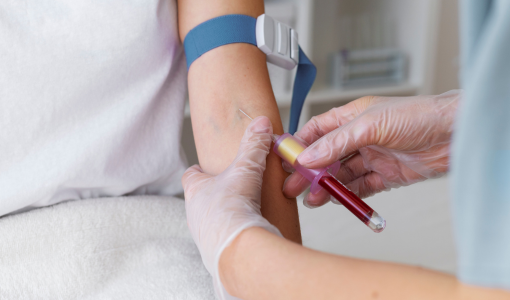Conditions / HIV
HIV

Overview
HIV is a virus that weakens the immune system by targeting and destroying CD4 cells (T cells), which are vital for fighting infections. Without treatment, HIV can progress to AIDS (Acquired Immunodeficiency Syndrome), the most advanced stage of the virus. However, with early detection and consistent antiretroviral therapy (ART), most individuals with HIV can live long, healthy lives while preventing transmission to others. Although there is currently no cure, HIV is considered a manageable chronic condition with proper medical care and support.
Symptoms
HIV symptoms vary depending on the stage of the infection. Some individuals may remain asymptomatic for years, while others may develop symptoms shortly after exposure.
Early Stage (Acute HIV Infection):
• Fever
• Fatigue
• Sore throat
• Rash
• Swollen lymph nodes
• Muscle aches
• Night sweats
Chronic HIV (Latent Stage):
• Often asymptomatic, but the virus continues to damage the immune system
Advanced Stage (AIDS):
• Rapid weight loss
• Frequent infections
• Persistent fever or night sweats
• Chronic diarrhea
• Sores in the mouth, genitals, or anus
• Memory loss or neurological issues
When to see a doctor
Consult a healthcare provider if you:
• Have had unprotected sex or shared needles and are concerned about HIV exposure
• Experience flu-like symptoms after potential exposure
• Are pregnant or planning to become pregnant and want to know your HIV status
• Are in a high-risk group (e.g., multiple sexual partners, injection drug use)
Seek immediate medical care if you experience:
• Severe or unexplained weight loss
• High, persistent fever
• Difficulty breathing or chest pain
• Confusion, memory problems, or other neurological changes
Causes
HIV is spread through contact with specific body fluids from a person with HIV. Transmission methods include:
• Unprotected sexual contact
• Sharing needles or syringes
• Mother-to-child during childbirth or breastfeeding
• Blood transfusion or organ transplant (rare in countries with strict screening)
HIV is not spread through casual contact, air, water, saliva, sweat, or insect bites.
Risk Factors
Risk factors for HIV include:
• Unprotected sex, especially with multiple partners
• Sharing needles or syringes
• Having another STI
• Being born to a mother with untreated HIV
• Occupational exposure to infected blood (e.g., healthcare workers)
Complications
Untreated HIV can lead to serious complications:
• Opportunistic infections (e.g., tuberculosis, pneumonia)
• Cancers (e.g., Kaposi’s sarcoma, certain lymphomas)
• Neurological conditions (e.g., dementia, neuropathy)
• Wasting syndrome (involuntary weight and muscle loss)
• Progression to AIDS
Medical Risk
Though incurable, HIV is manageable with proper treatment. Management includes:
• Daily ART medications: Suppress the virus and prevent transmission
• Routine monitoring: Regular blood tests to track viral load and immune status
• Healthy lifestyle: Balanced diet, exercise, and infection prevention
• Mental health support: Addressing emotional and social challenges
Potential risks and considerations:
• Side effects from medications (e.g., nausea, fatigue, liver/kidney issues)
• Drug resistance from inconsistent ART use
• Stigma and mental health impacts affecting treatment adherence
With consistent treatment and a supportive care plan, individuals with HIV can expect to live long, healthy lives with a good quality of life.
Medications We Offer
• Xolair
• Cabenuva
• Apretude
